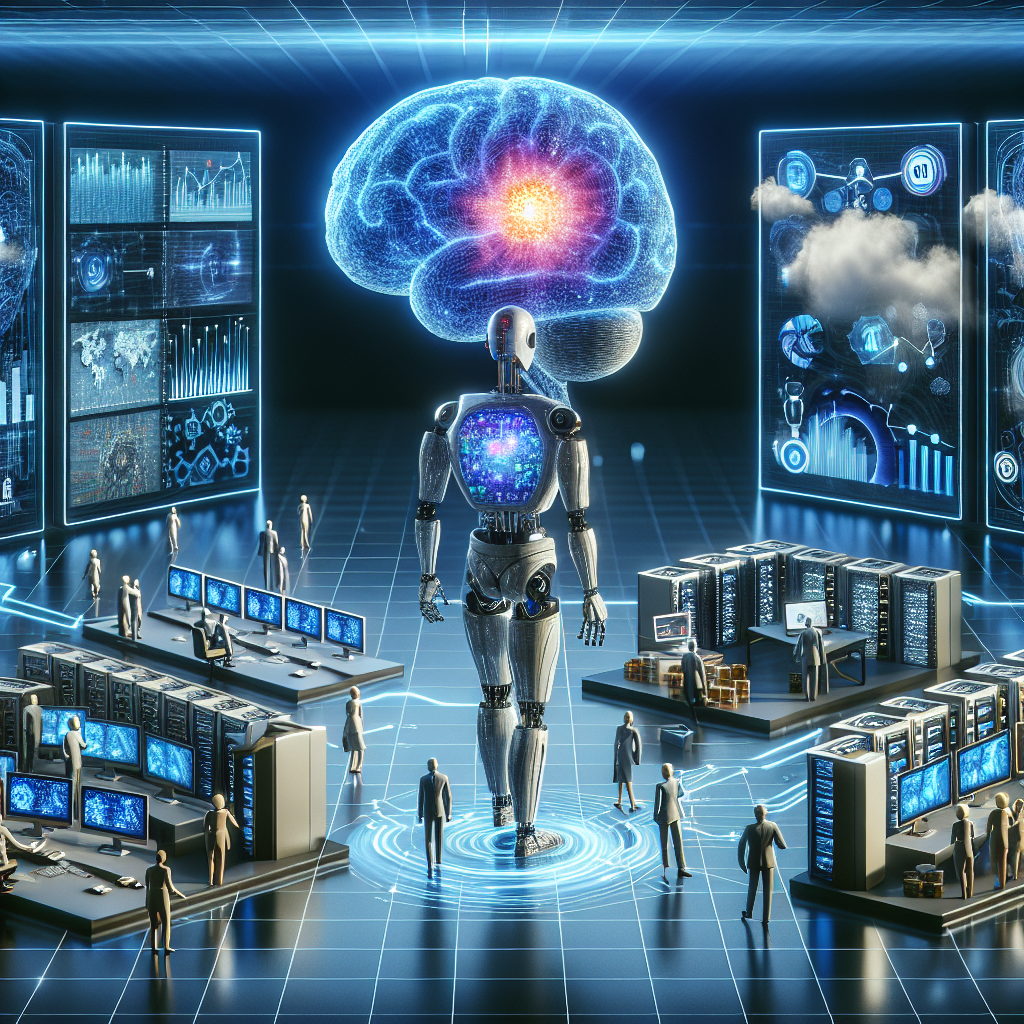Artificial General Intelligence (AGI) is a term that describes the ability of a machine to understand and learn any intellectual task that a human being can. Unlike Artificial Narrow Intelligence (ANI), which is designed for specific tasks such as playing chess or recognizing speech, AGI is meant to mimic the cognitive abilities of humans across a wide range of tasks. While AGI is still in its early stages of development, businesses are already beginning to explore how they can harness the power of this technology to improve their operations and drive innovation.
In this article, we will explore how businesses are using AGI in the real world, the benefits and challenges of implementing AGI, and what the future may hold for this exciting technology.
How Businesses are Using AGI
Businesses across a variety of industries are starting to experiment with AGI to automate tasks, improve decision-making processes, and create new products and services. Here are some examples of how businesses are using AGI in the real world:
1. Customer Service: Many companies are using AGI-powered chatbots to provide customer service and support. These chatbots can answer frequently asked questions, schedule appointments, and even make recommendations based on customer preferences.
2. Marketing: AGI can analyze large amounts of data to identify trends and patterns, which can help businesses target their marketing efforts more effectively. For example, AGI can analyze customer behavior to personalize marketing messages or predict which products customers are likely to purchase.
3. Healthcare: AGI is being used in the healthcare industry to assist with diagnosis and treatment planning. For example, AGI can analyze medical images to detect early signs of disease or recommend personalized treatment plans based on a patient’s medical history.
4. Finance: AGI is also being used in the finance industry to automate tasks such as fraud detection, risk assessment, and investment management. AGI-powered algorithms can analyze market data in real-time to make better investment decisions or detect anomalies that may indicate fraudulent activity.
5. Manufacturing: AGI can optimize production processes by analyzing data from sensors and other sources to identify inefficiencies and suggest improvements. AGI can also predict equipment failures before they occur, allowing companies to schedule maintenance proactively.
Benefits of Implementing AGI
There are several benefits to implementing AGI in businesses:
1. Increased Efficiency: AGI can automate repetitive tasks, freeing up employees to focus on more strategic activities. This can lead to increased productivity and cost savings for businesses.
2. Improved Decision-Making: AGI can analyze vast amounts of data quickly and accurately, helping businesses make better decisions. This can lead to better outcomes, such as increased sales, reduced costs, and improved customer satisfaction.
3. Personalization: AGI can analyze customer data to personalize products and services, creating a more engaging and satisfying experience for customers. This can lead to increased loyalty and higher customer retention rates.
Challenges of Implementing AGI
While there are many benefits to implementing AGI, there are also several challenges that businesses may face:
1. Data Quality: AGI relies on high-quality data to make accurate predictions and decisions. Businesses must ensure that their data is clean, relevant, and up-to-date to get the most value from their AGI systems.
2. Privacy and Security: AGI can analyze large amounts of personal data, raising concerns about privacy and security. Businesses must take steps to protect customer data and comply with regulations such as the General Data Protection Regulation (GDPR).
3. Ethical Considerations: AGI systems may make decisions that have ethical implications, such as determining who gets a loan or who gets hired for a job. Businesses must consider the ethical implications of their AGI systems and take steps to ensure fairness and transparency.
The Future of AGI
The field of AGI is still in its early stages, but the potential applications of this technology are vast. As AGI continues to develop, businesses will have even more opportunities to leverage its power to drive innovation and improve their operations. Some experts predict that AGI could eventually surpass human intelligence, leading to a new era of technological advancement and economic growth.
FAQs about AGI
Q: How is AGI different from ANI?
A: AGI is designed to mimic the cognitive abilities of humans across a wide range of tasks, while ANI is designed for specific tasks such as playing chess or recognizing speech.
Q: What are some examples of AGI in the real world?
A: Examples of AGI in the real world include customer service chatbots, marketing analytics tools, healthcare diagnosis systems, finance algorithms, and manufacturing optimization systems.
Q: What are the benefits of implementing AGI in businesses?
A: The benefits of implementing AGI in businesses include increased efficiency, improved decision-making, and personalized customer experiences.
Q: What are the challenges of implementing AGI?
A: Challenges of implementing AGI include data quality, privacy and security concerns, and ethical considerations.
Q: What does the future hold for AGI?
A: The future of AGI is bright, with potential applications in a wide range of industries. As AGI continues to develop, businesses will have more opportunities to leverage its power to drive innovation and improve their operations.

